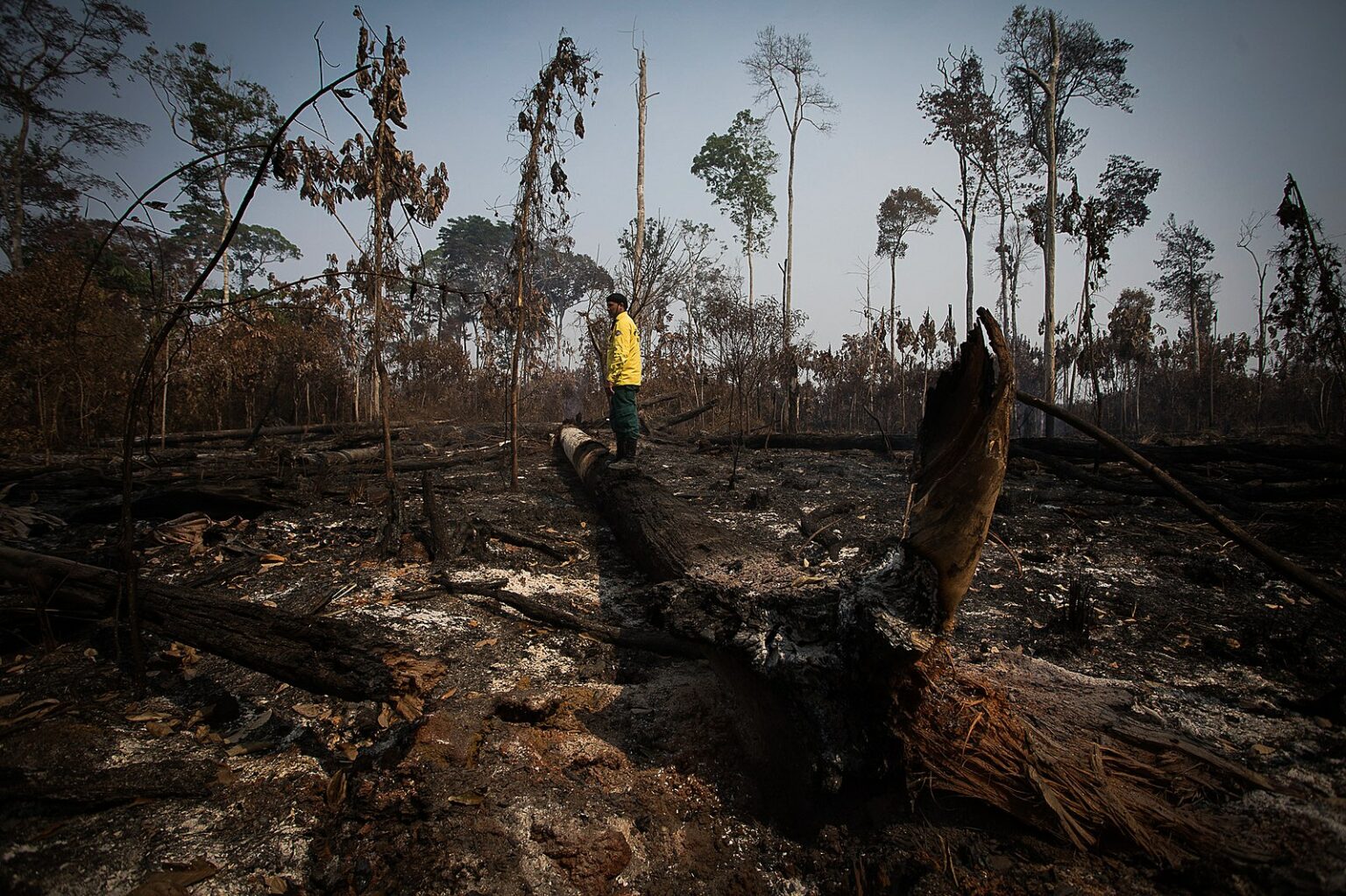Representatives of major Brazilian meat companies linked to Amazon deforestation are among delegates representing the country at the COP26 climate summit.
Brazil joined over 100 countries to announce a “landmark” pledge to protect forests on Tuesday at the climate conference, promising to end deforestation by 2030.
But a list released by COP26 organisers this week shows that not only is Brazil sending the largest delegation to the climate summit, but the delegation — responsible for representing the country’s interests — includes powerful agribusiness connections as well as other major polluters.
This includes two senior representatives of two of Brazil’s largest meat companies, Marfrig and Minerva: Marcos Antonio Molina dos Santos, the chair of Marfrig, and Fernando Galletti de Queiroz, the CEO of Minerva Foods.
Together with the world’s largest meat company JBS, the two companies dominate Brazil’s meat industry. Marfrig is the world’s second largest producer of beef, while Minerva is South America’s largest beef exporter.
Other delegates include representatives from the Brazilian Confederation of Agriculture and Livestock (CNA), a trade body representing meat producers, a representative of Petrobras, the state-owned Brazilian oil company, and Suzano, the world’s biggest wood pulp producer.
Some of these agribusinesses have been accused of contributing to the Amazon’s destruction, including through ties to record breaking fires in the Pantanal region last year, one of the world’s largest tropical wetlands. Analysing satellite images, a Greenpeace report suggests ranchers who have supplied meat to both Marfrig and Minerva were linked to last year’s fires in the region.
Protecting the Amazon is crucial to climate efforts to limit the rise of global temperatures. The forest is responsible for storing massive amounts of carbon dioxide — but a recent study showed parts of the Amazon are now releasing more carbon than is being trapped in the trees. In 2020, deforestation of the rainforest reached a 12-year high.
Agriculture drives an estimated three quarters of deforestation worldwide, and beef production accounts for just over 40 percent. Brazil, currently led by right-wing populist Jair Bolsonaro, is responsible for over a third of deforestation globally, making it the biggest contributor to deforestation worldwide.
Marfrig and Minerva have both taken steps in recent years to limit deforestation from their supply chains. However a number of factors, including the sheer size of the industry, a lack of transparency from the government, and previous unsuccessful attempts means that some people remain sceptical about the action the companies have proposed.
Shona Hawkes, global forests policy advisor at Global Witness, said: “Those forests are at such a critical tipping point now. And this is something that Brazilian people overwhelmingly are saying they want action on, indigenous peoples in Brazil are saying they want action on, and so it’s really up to the global community not to legitimise the Bolsonaro government’s so-called commitments, which fall short.”
“The only way that we’re going to stop catastrophic climate change and have any way of existing on the planet is to end deforestation now. Stop it now,” Hawkes continued. “And we can’t rely on targets that are 2025, 2030, 2050.”
“I think any government making a climate commitment, which fails to rein in such a massive environmental issue like deforestation, even just illegal deforestation, certainly smacks of greenwashing and raises questions as to why those decisions are so out of sync with what the Brazilian public is calling for.”
Marcio Astrini, executive secretary of the Observatório do Clima, a network of climate organisations operating in Brazil, said “the inclusion of polluters in the Brazilian delegation isn’t a new situation. Brazilian governments (even before Bolsonaro) were used to including several sectors. What has changed is the fact that civil society, among others, are no longer welcomed.”
Astrini continued: “This government has, since the first day, campaigned against forests, climate, biodiversity, Indigenous communities and the science.”
A media spokesperson for the Brazilian delegation and the country’s UNFCCC national focal point were contacted for comment.
Additional research by Adam Barnett and Michaela Herrmann.
Subscribe to our newsletter
Stay up to date with DeSmog news and alerts







